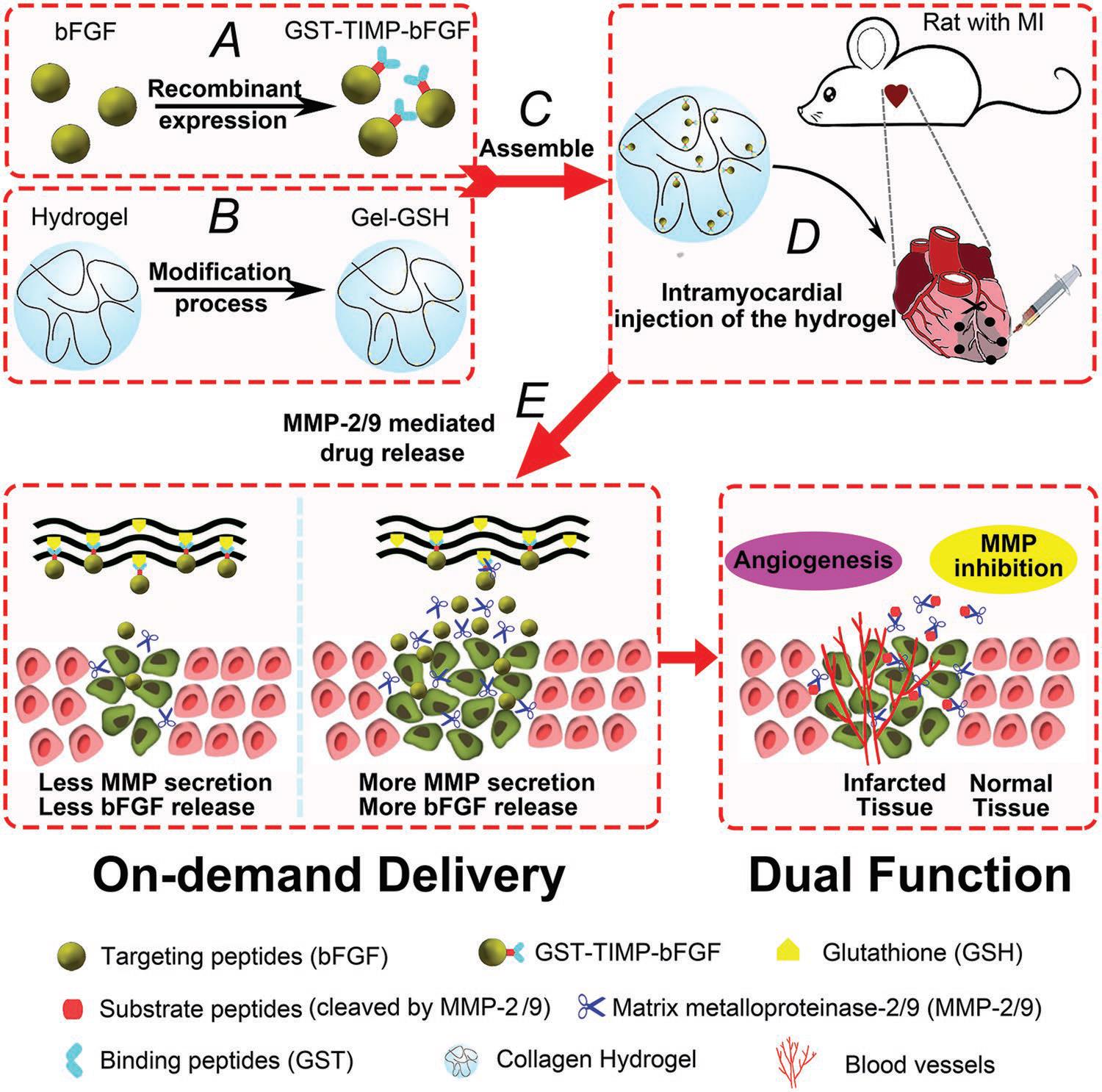Myocardial infarction (MI) is the primary cause of cardiovascular mortality and disability worldwide, which commonly results in ischemic myocardial tissue and progressively negative ventricular remodeling due to occluded coronary arteries. Although in situ restoration of blood supply to the infarction region and attenuating pre-existing extracellular matrix degradation remain potential therapeutic approaches for myocardial infarction (MI), local delivery of therapeutics has been limited by low accumulation and unnecessary diffusion.
A research team leads by Prof. DAI Jianwu from Suzhou Institute of Nano-tech and Nano-bionics(SINANO),Chinese Academy of Sciences(CAS), has reported of a dual functional MI-responsive hydrogel, which is fabricated for on-demand drug delivery to promote angiogenesis and inhibit cardiac remodeling by targeting upregulated matrix metalloproteinase-2/9 (MMP-2/9) after MI.
As is designed for myocardial-infarction-responsive, scientists utilized a glutathione (GSH)-modified collagen hydrogel (collagen-GSH) by conjugating collagen amine groups with GSH sulfhydryl groups and the recombinant protein GST-TIMP-bFGF (bFGF: basic fibroblast growth factor) by fusing bFGF with glutathione-S-transferase (GST) and MMP-2/9 cleavable peptide PLGLAG (TIMP). Specific binding between GST and GSH significantly improves the amount of GST-TIMP-bFGF loaded in collagen-GSH hydrogel. The TIMP peptide enclosed between GST and bFGF responds to MMPs for on-demand release during MI. Additionally, the TIMP peptide is a competitive substrate of MMPs that inhibits the excessive degradation of cardiac matrix by MMPs after MI. GST-TIMP-bFGF/collagen-GSH hydrogels promote the recovery of MI rats by enhancing vascularization and ameliorating myocardium remodeling.
This work was recently published in Advanced Materials and demonstrated the distinct advantages of on-demand growth factor delivery by synchronously controlling binding and responsive release to promote angiogenesis and attenuate cardiac remodeling, which might be promising for the treatment of ischemic heart disease.
This work was supported by grants from the Key Research Program of the Chinese Academy of Sciences (Grant No. ZDRW-ZS-2016-2-2), the National Key R&D Program of China (Grant Nos. 2016YFC1000801, 2016YFC1000802, and 2016YFC1000808), the Jiangsu Planned Projects for Postdoctoral Research Funds (Grant No. 2018K174C), and the Youth Innovation Promotion Association CAS (Grant No. 2016096) Project from China. 
Figure 1. Schematic representations of MMP-responsive hydrogel preparation and the process of drug release in the wound bed of MI model rats. (Image by SINANO) Contact information:
Prof. Dai Jianwu, Suzhou institute of Nano-Tech and Nano-Bionics, Chinese Academy of Sciences.
Email: jwdai@genetics.ac.cn
Reference: https://onlinelibrary.wiley.com/doi/full/10.1002/adma.201902900 |

